VIPsight - 1st Edition 2020
COMPANIES
Continental AG: Don`t do Things by Halves
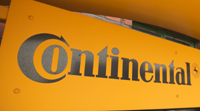 Effective January 1st, 2019, Continental concluded the realignment of its powertrain business into an independent group of legal entities now called Vitesco Technologies. But just in October 2019, the Executive Board of Continental AG decided to spin-off Vitesco Technologies from Continental with a subsequent listing. Subject to the approval of the Supervisory Board of Continental, the planned spin-off shall be submitted to the AGM on April 30th, 2020, for approval. The listing of Vitesco could take effect within the same year.
Effective January 1st, 2019, Continental concluded the realignment of its powertrain business into an independent group of legal entities now called Vitesco Technologies. But just in October 2019, the Executive Board of Continental AG decided to spin-off Vitesco Technologies from Continental with a subsequent listing. Subject to the approval of the Supervisory Board of Continental, the planned spin-off shall be submitted to the AGM on April 30th, 2020, for approval. The listing of Vitesco could take effect within the same year.
Initially, the company had planned a partial sale and a subsequent listing of the business. The decision to rather spin-off the division as a whole instead can be interpreted as a signal that challenging times are ahead. In this regard, Continental talked about taking the offensive and tackling the accelerating trend towards powertrain electrification. But Continental is also reacting to the at present largely unpredictable conditions for a potential partial IPO in 2020.
METRO AG: Another exclusive Attempt to sell Real
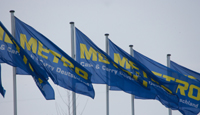 Anyone looking for a German soap opera will find great entertainment at METRO. The most recent U-turn took place on December 5th, 2019 with the termination of the negotiations with the bidder consortium led by redos real estate gmbH and the agreement with a consortium of The SCP Group S. á. r. l. and x+bricks AG (“consortium”) on a memorandum of understanding and exclusive negotiations regarding the sale of its hypermarket business and related business activities (“Real”). The aim of the parties to this memorandum is to conclude a sale agreement for the hypermarket business until the end of January 2020.
Anyone looking for a German soap opera will find great entertainment at METRO. The most recent U-turn took place on December 5th, 2019 with the termination of the negotiations with the bidder consortium led by redos real estate gmbH and the agreement with a consortium of The SCP Group S. á. r. l. and x+bricks AG (“consortium”) on a memorandum of understanding and exclusive negotiations regarding the sale of its hypermarket business and related business activities (“Real”). The aim of the parties to this memorandum is to conclude a sale agreement for the hypermarket business until the end of January 2020.
Exclusivity is a relative property these days. About six months ago METRO concluded an agreement on exclusive negotiations regarding the sale of the hypermarket business with the consortium led by redos. Now, a revised offer submitted by the consortium on October 31st, 2019, formed the basis for the new exclusivity agreement. According to METRO, the consortium aims to fully acquire Real´s operating business and the real estate portfolio of 80 properties. As regards operations, a nucleus of stores shall be continued, while a large number of stores will be transferred and others shall be closed. The transfer of stores to other retailers shall take place subsequently and is independent of the sale of Real to the consortium. In case of a transfer of a store to another retailer, it is the intention of the parties to contractually oblige these retailers to take over the Real employees. Similar to the previously contemplated transaction with the consortium led by redos, METRO expects a net cash effect from the transaction of 0.5bn EUR.
Buhlmann's Corner
35 years of tools, 20 years of examples ... the world just one month ago
 Who knows today what NOBO/OBO voting is? Until the 1980s, the question of Non-Objecting Beneficial Owner (NOBO) or Objecting Beneficial Owner (OBO) was about the secret power of uncontrolled brokers.
Who knows today what NOBO/OBO voting is? Until the 1980s, the question of Non-Objecting Beneficial Owner (NOBO) or Objecting Beneficial Owner (OBO) was about the secret power of uncontrolled brokers.
More details can be found here:
https://www.investopedia.com/terms/n/nobo.asp
In the USA, the much larger voting platforms of today owe their genesis to the irritation they have caused.
In 1985 ENRON was born in Houston through a merger. Until 2001, the company under CEO Keneth Lay was considered the greatest investor favourite: "The World's Greatest Company". With well-tested financial statements and unlimited credit standing.
With just a few techniques of creative accounting (derivatives, offshore, mark-to-market of exotics) the dream of the all-rounder came true until his CFO Andrew Fastow and his chief accountant Richard Causey got tangled up. A balance sheet hole opened up in which the company disappeared together with Arthur Anderson LLP (after 88 years of membership of the Big Five Global Auditors). The pension assets (invested in ENRON) of over 22,000 employees went up in smoke.
Bernie (Bernard) Ebbers will remember this. He was one of the few CEOs who grew up even faster and even bigger than ENRON. Whether the telephone company learned Worldcom from ENRON is not known. The fact is that Worldcom was listed on the stock exchange for only 5 years and shocked the investment world with its MSCI bubble.
Both bankruptcies made it clear that more governance and greater transparency were needed - worldwide. This was a major milestone for today's corporate governance and regulations such as the EU's Shareholder Rights Directive II.
Bernie Ebbers, who regained his freedom just over a month ago, can judge whether this helps or has helped; he has served half of his 25-year sentence. Now the so-called "Marlboro Man", born in Edmonton (Canada), can wear his Stetson and cowboy boots again. Will today's governance, spurred on by mega-accidents and extreme fraud, make the world a better place?
Executives earn a multiple (not only in exceptional cases) after two decades, for supervisory boards /NED's the multiple is even higher and the metaphor once described by Hermann Josef Abs (one Josef Ackermann's predecessors): "It is more difficult to make a supervisory board liable than to hold a sow by its soapy tail" still applies.
I am afraid that not much has changed.
Carlos Goshn still manages to drive Renault, Nissan and the judiciary through the ring with his double bass box - his waiver of 12 million bail and travel expenses to Lebanon is at least as high as he earned and received in half a working day as their CEO. For years, my friend Pierre-Henri Leroy in Paris publicly accused him of some of his misdeeds with blame and shame.
Here is an example:
http://www.proxinvest.fr/?p=3615&lang=en
Today we know how much more happened, not only about the famous time-out of a Ghosn's Board meeting of 20 minutes. Read here:
https://www.vipsight.eu/index.php/vipsight-south-africa-npos-lend-a-helping-hand-2-may-2015
As so often in life, the beginning is the most difficult, the famous first time. Also the Catholic Church now publishes a set of rules for ethics and more. You can find some excerpts here:
Currently the Bafin as regulator is looking more and more at 35 /135 pension funds - whether looking is required, whether (potential) pensioners are informed - nobody knows.
At the moment everybody is looking at Australia, where coal and forests are relentlessly mined -
but ... and who invests, as repeatedly suggested and demanded, in projects for the benefit of the African population, or is working on the ENRONs and Worldcoms of today?
ACTIONS CORNER
COMMERZBANK AG: Why opt for an easy Solution if complicated is a valid Option?
 A key element of the banks Strategic Program COMMERZBANK 5.0 is an increased focus on the expansion of its mobile banking capabilities, including a possible merger of comdirect bank AG into Commerzbank. Amid this background, it´s fully-owned subsidiary Commerzbank Inlandsbanken Holding GmbH released an acquisition offer on October 30th, offering 11.44 EUR per outstanding comdirect share. The acquisition offer was subject to the condition of a minimum acceptance threshold of 90% of the share capital (including 82.31% of comdirect shares already held by the bidder).
A key element of the banks Strategic Program COMMERZBANK 5.0 is an increased focus on the expansion of its mobile banking capabilities, including a possible merger of comdirect bank AG into Commerzbank. Amid this background, it´s fully-owned subsidiary Commerzbank Inlandsbanken Holding GmbH released an acquisition offer on October 30th, offering 11.44 EUR per outstanding comdirect share. The acquisition offer was subject to the condition of a minimum acceptance threshold of 90% of the share capital (including 82.31% of comdirect shares already held by the bidder).
As required by Section 27 of the German Securities Acquisition and Takeover Act (WpÜG), the Management Board and the Supervisory Board of comdirect published a Joint Statement on the public takeover offer. In this statement, the Boards conclude that the amount of the offer price is appropriate, and therefore recommend short-term oriented shareholders to accept the offer. However, concerning shareholders with an interest in long-term development of comdirect, the boards decided that they cannot assess the strategic orientation comdirect will receive together with the bidder and COMMERZBANK and therefore refrained from giving a recommendation.
By the end of the offer period on December 6th, 2019, the number of shares tendered amounted to 457,343. Including shares already held, the shareholding of the bidder amounted to 82.63% of all shares outstanding. Consequently, the acceptance threshold of 90% has not been reached and the offer was not executed. However, COMMERZBANK already announced that it plans to integrate comdirect through a direct merger into Commerzbank. The indicated acquisition of additional shares from Petrus Advisers Ltd. might help to lift the COMMERZBANK`s holding above the 90% threshold and facilitate a later merger.
DELIVERY HERO SE: Expansion in Korea
Delivery Hero signed agreements with shareholders, including senior management, of Woowa Brothers Corp. Woowa operates the largest online food delivery service in South Korea, Baedal Minjok, which generated approximately 100m orders in Q3 2019. In the financial year ending December 2018, Woowa grew revenues by 96% year-on-year to 242m EUR, with GMV reaching 4.0bn EUR and an EBITDA of 46m EUR. Apart from its Korean operations, Woowa also operates a successful business in Vietnam.
The transaction is valued at an enterprise value of USD 4.0bn on a cash and debt-free basis (before adjustments). Delivery Hero is expected to achieve a 100% ownership in Woowa for a consideration of approximately 1.7bn EUR in cash plus 1.9bn EUR in shares. At closing, Delivery Hero will acquire up to 88% of the share capital of Woowa from institutional investors, while the remaining 12% currently held by Woowa board members shall be exchanged in Delivery Hero shares over four years. The new shares issued by Delivery Hero from the existing authorized capital will be equivalent to 17.5% of Delivery Hero´s share capital post-transaction.
The closing of the transaction is subject to certain conditions including financing and regulatory approvals and is expected to occur in the second half of 2020. In this regard, it should be noted that according to the Korea Times Delivery Hero is already running Yogiya and Baedaltong food delivery services in Korea, making it the dominant player in the country´s food delivery market. Nielsen Korea expected that Yogiyo´s market share reached 33.5 percent last year, while Baeldaltong controlled 10.8 percent. Woowa would add its Baedal Minjok´s food delivery service, i.e. the outstanding 55.7 percent market share. Hence, the fate of the transaction will most likely be decided by the Fair Trade Commission.
ADO Properties S.A.: Consolidation Train under full Steam
 ADO Properties decided to make a voluntary public offer to the shareholders of ADLER real estate AG in the form of an exchange offer for the ordinary shares in ADLER. The plan is to offer 0.4164 new shares in ADO as consideration in exchange for each tendered share of ADLER.
ADO Properties decided to make a voluntary public offer to the shareholders of ADLER real estate AG in the form of an exchange offer for the ordinary shares in ADLER. The plan is to offer 0.4164 new shares in ADO as consideration in exchange for each tendered share of ADLER.
In connection with the offer, ADO and ADLER entered into a business combination agreement, covering the strategic objectives of ADO and ADLER concerning portfolio diversification, the intended future governance structure for the combined group´s business and the integration process, the timeline and the conditions of the offer. The combined company shall be named ADLER Real Estate Group. Also, ADO entered into irrevocable undertakings with major shareholders of ADLER – including inter alia the Co-CEO of ADLER, Thomas de Vargas Machuca – representing 52.21% of the shares and voting rights in ADLER, whereby such shareholders committed themselves vis-á-vis ADO, subject to certain conditions, to submit their share within the acceptance period of the offer.
Based on current figures, the business combination of ADO´s Berlin-based portfolio and ADLER´s Germany-wide portfolio will create an 8.6bn EUR residential portfolio. As of the time of publication, the planned transaction offered ADLER shareholders a 17.33% premium to ADLER´s closing share price before the announcement. The combined company with an estimated free float capitalization of approximately 1.8bn EUR is considered to be a likely MDAX-candidate.
Concurrently with the conclusion of a strategic cooperation agreement, ADO will acquire a 22.18% stake in the German residential developer CONSUS for a cash consideration of 294m EUR. Including shares already owned, ADO´s will control approximately 25% of CONSUS. As part of the agreement, the two companies will work closely together on residential development projects. Furthermore, a call option has been agreed with Aggregate Holding SA, CONSUS` 51% shareholder. The option can be exercised within the coming 18 months with the consideration being paid in new ADO shares, at an exchange ratio of 0.239 ADO shares for each CONSUS share. In case of a change of control at ADO, Aggregate also has a put option to sell its 51% stake in CONSUS to ADO.
First Sensor AG: Another one bites the Dust
 In July 2019, First Sensor received a voluntary public takeover offer from TE Connectivity. By the end of the acceptance period on September 2nd, First Sensor Shareholders hat tendered a total of 7,376,321 shares in return for a consideration of 28.25 EUR per share. This outcome was no surprise given that at the time of the offer the bidder had already concluded irrevocable agreements with various anchor shareholders of First Sensor who held approximately 67% of the total outstanding shares between them. These shareholders undertook to accept the takeover offer for all shares in their position.
In July 2019, First Sensor received a voluntary public takeover offer from TE Connectivity. By the end of the acceptance period on September 2nd, First Sensor Shareholders hat tendered a total of 7,376,321 shares in return for a consideration of 28.25 EUR per share. This outcome was no surprise given that at the time of the offer the bidder had already concluded irrevocable agreements with various anchor shareholders of First Sensor who held approximately 67% of the total outstanding shares between them. These shareholders undertook to accept the takeover offer for all shares in their position.
The offer did not establish a minimum threshold level. Therefore, at the expiry of the initial acceptance period, all non-regulatory offer conditions had been fulfilled. Nonetheless, shareholders who did not accept the offer within the initial acceptance period could do so during the additional acceptance period which ran until September 19th, 2019. By the end of this additional period, the total number of shares tendered increased to 7,380,905 shares, which corresponds to 71.87% of the total share capital and voting rights of First Sensor.
On December 10th, 2019, TE Connectivity approached First Sensor to discuss its intention to establish a domination and profit and loss transfer agreement pursuant to Section 291 ff AktG.
The Executive Board of First Sensor has decided to enter into discussions on the conclusion of a domination and profit and loss transfer agreement. However, these discussions are subject to the completion of the public takeover offer of TE Connectivity, which still is subject to the conditions of the foreign investment clearances in the United States of America and in the Federal Republic of Germany. In a prior publication, First Sensor expected the acquisition to be completed by mid-2020 at the latest. Shareholders of First Sensor may have to put Berlin on this year´s Summer vacation agenda…
Aroundtown SA / TLG IMMOBILIEN AG: Consolidation Wave at full Swing with Real Estate Companies
In September 2019, when TLG bought a 9.99% holding in Aroundtown, the company announced its intention to commence discussions concerning a potential merger. These discussions resulted in a business combination agreement with Aroundtown SA on November 19th, 2019, followed by a voluntary public exchange offer to all TLG shareholders by Aroundtown on December 18th, 2018.
With this offer, Aroundtown offers 3.6 Aroundtown shares for each TLG share. The exchange ratio was derived from TLG´s and Aroundtown´s EPRA NAV per share, in each case as of June 30, 2019. Based on the XETRA closing prices (Frankfurt Stock Exchange) for the shares of both companies as of November 18, 2019, the implied price per TLG share amounts to 27.66 EUR, representing a premium of 3.2% to TLG´s last closing price. The largest TLG shareholder, Ouram Holding S.á.r.l., has already entered into an agreement with Aroundtown to tender, under specific conditions, approximately 28% of TLG shares into the exchange offer. The offer will expire on January 21st, 2020.
The Management Board and the Supervisory Board of TLG support the exchange offer amidst expected efficiency improvements and cost reductions of the joint operations and the management of the combined property portfolio. The business combination is expected to create a leading pan-European platform for commercial real estate assets with a portfolio size of more than 25bn EUR. According to TLG´s management, the synergy potential could lead to an improvement in the pre-tax operating profit of between 110m EUR and 139m EUR per year within five years.
So far this sounds like a typical merger transaction, but there is an interesting additional element involved. The business combination agreement stipulates certain governance rights for TLG which reflect the principle of joint leadership in the controlling company of the combined group. In particular, Aroundtown shall introduce a new management body consisting of five members, of which TLG may nominate the CFO, if Aroundtown holds more than 50% of all TLG shares. Aroundtown will nominate the CEO. In case Aroundtown holds at least 66% of TLG’s shares, TLG may nominate one of the remaining three members. One of the TLG-nominated members shall be Co-CEO. If Aroundtown exceeds the 50% threshold, its board of directors shall comprise up to 8 members, including Aroundtown’s current three executive members and three or four independent members within the meaning of Luxembourg listing rules. If Aroundtown holds 40% or more of TLG’s shares, the chairman of the board shall be nominated by TLG and have a casting vote in case of a tie. Upon receipt of the requisite merger clearance, TLG may, in addition, nominate two out of four members in a newly formed integration committee at the level of Aroundtown, the primary objective of which is the discussion of the necessary steps to integrate both businesses. Further, TLG may nominate an additional member to Aroundtown’s advisory board.
Politics
CTS EVENTIM AG & Co. KGaA: When the Minister of Transport and Digital Infrastructure dreams of big Money
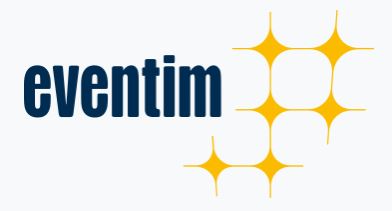 Following the unilateral termination of the operating agreement regarding the infrastructure levies with effect as of September 30th, 2019, by the German Federal Ministry of Transport and Digital Infrastructure, autoTicket GmbH, which is a 50/50 joint venture of Kapsch TrafficCom AG and CTS EVENTIM AG & Co. KGaA, and its two shareholders decided in December that the contractually agreed payment claims against the Federal Republic of Germany amount to approximately 560m EUR and to assert claims.
Following the unilateral termination of the operating agreement regarding the infrastructure levies with effect as of September 30th, 2019, by the German Federal Ministry of Transport and Digital Infrastructure, autoTicket GmbH, which is a 50/50 joint venture of Kapsch TrafficCom AG and CTS EVENTIM AG & Co. KGaA, and its two shareholders decided in December that the contractually agreed payment claims against the Federal Republic of Germany amount to approximately 560m EUR and to assert claims.
These claims are based on the assumption that autoTicket GmbH and its shareholders Kapsch TrafficCom AG and CTS EVENTIM AG & Co. KGaA have a compensation claim due to the early termination of the agreement by the Federal Republic of Germany, equal to the loss of profits over the term of the agreement. Also, the agreement provides for compensation of the costs arising from the termination of the agreement which includes compensation claims of subcontractors, including Kapsch TrafficCom AG and CTS EVENTIM AG & Co. KGaA, as well as some of their affiliated companies.
The agreement provides for an efficient procedure for dispute resolutions: First, an independent auditor shall validate the amount of the asserted loss of profits. Thereafter, settlement negotiations with the Federal Republic of Germany are contemplated. In the event of failure of this procedure, the claim will be finally decided in arbitration.
People
SGL Carbon SE: Corrected Earnings Guidance, and more
 SGL Carbon was never suspected of being a particularly profitable company. But the earnings guidance usually proved to be reliable information. Similar expectations apply to the outlook for the full year 2019, which was confirmed in early August 2019. But just a few days later a sharp correction became necessary.
SGL Carbon was never suspected of being a particularly profitable company. But the earnings guidance usually proved to be reliable information. Similar expectations apply to the outlook for the full year 2019, which was confirmed in early August 2019. But just a few days later a sharp correction became necessary.
SGL claims that the correction was due to lower than expected results of the business unit Composites – Fibers & Materials (CFM) in July 2019. As a consequence, the company took a closer look at the actual results and the plan of CFM and concluded, that the guidance for the unit and the Group needed to be corrected. The deviation to the preciously expected recurring EBIT of CFM can be attributed to two factors. Half of it is due to erroneous planning assumptions within the framework of a high-volume contract in the market segment Wind Energy, while the rest reflects a more cautious view of the outlook for the market segment Industrial Applications. Consequently, SGL lowered its recurring Group EBIT and net result guidance for 2019 and clarified that the guidance for the following years was no longer sustainable.
As a consequence, the CEO Dr. Jürgen Köhler informed the supervisory board in mid-August about his resignation, effective August 31st, 2019. The supervisory board decided to fill the vacant position externally. However, recent news about continued weakness in the CFM segment is not helpful in this respect. The further earnings deterioration at CFM, which is caused by a weaker outlook for the Textile Fibers and the Industrial Applications units, also triggered an impairment testing, resulting in a non-cash impairment charge of approximately 75m EUR.
CECONOMY AG: Where is the Strategy?
 For several reasons, CECONOMY is going through a difficult phase. Apart from the challenging business environment, the most obvious obstacle is the group´s corporate governance structure. How can you create a solid business strategy if you do not have full control over a substantial part of your business?
For several reasons, CECONOMY is going through a difficult phase. Apart from the challenging business environment, the most obvious obstacle is the group´s corporate governance structure. How can you create a solid business strategy if you do not have full control over a substantial part of your business?
Jörn Werner met high expectations when he took over the CEO position in March 2019. And indeed, a few months later a series of positive signals regarding the critical relationship with the minority shareholder in its main operating subsidiaries emerged. This found an abrupt end a few weeks later when CECONOMY informed the public on October 15th, 2019 about the agenda of a scheduled extraordinary meeting of its Supervisory Board, which included the discussion of early termination of the appointment of the CEO. Two days later the company informed that the Supervisory Board and Mr. Werner decided by mutual agreement to part with immediate effect. At the same time, the Supervisory Board appointed Dr. Bernhard Düttmann, member of the Supervisory Board, for a term of twelve months as CEO. Jürgen Fitschen, Chairman of the Supervisory Board, explained the decision as follows: "We would like to thank Mr. Werner for his commitment and the work he has done. He played an active role in the strategic development of CECONOMY. With regard to managing the company, however, there are different views between him and the Supervisory Board, so that the separation is a logical step".
No CEO, no strategy, no plan in sight, but just another interim solution.
Capital News
Daimler AG: Cleaning the Diesel is not an easy Task
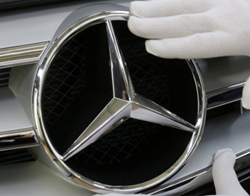 In September 2019 Daimler AG informed about a fine in the amount of 870m EUR related to its diesel cheating scandal. This settlement concluded the public prosecutor´s administrative offense proceeding against Daimler AG.
In September 2019 Daimler AG informed about a fine in the amount of 870m EUR related to its diesel cheating scandal. This settlement concluded the public prosecutor´s administrative offense proceeding against Daimler AG.
Despite the fine, Daimler continued to deny any wrongdoing. Nonetheless, the Diesel scandal continues to burden the company. In January, the Financial Times reported that more than 200 institutional investors are seeking 900m EUR in damages from Daimler, alleging that the Mercedes-Benz owner failed to disclose the use of diesel emissions cheat devices. The underlying claim is that shares once worth more than 90 EUR a share fell to approximately 60 EUR in 2018 after regulators accused the carmaker of installing illegal software in its vehicles. Hence, the company is accused of violating its obligations under capital market law by not mentioning the existence of the devices in its financial reports or in ad hoc announcements. In contrast to previous connotations by Daimler, German officials said that 700,000 Daimler cars in Europe had been fitted with systems designed to defeat pollution tests.
Quiagen NV: Shareholders did not receive a Christmas Present
This biotech company looked ripe for a takeover. Hence, it did not come as a surprise when QUIAGEN N.V. announced in November 2019 the start of a review of potential strategic alternatives after having received several conditional, non-binding indications of interest for the acquisition of all issued and outstanding shares of the company. At the same time, Quiagen announced that the Supervisory Board and the Management Board started discussions with interested parties in this process. The aim of the discussions was to explore potential strategic alternatives that could provide greater value creation opportunities than stand-alone growth prospects. According to market rumors, Thermo Fisher Scientific, Inc. was one of the parties interested.
This was great news for the share price. While the stock just saw a record low around 22 EUR in October, the quotation jumped to over 38 EUR within a few days following the news release. But on December 24th, reality struck with the publication of the company´s decision to terminate the discussions. This came as a reminder to shareholders of the company´s less-than-optimal recent business performance, resulting in a sharp decline in the share price.
Villeroy & Boch AG: Unrest in the China Business, or perhaps in Luxembourg?
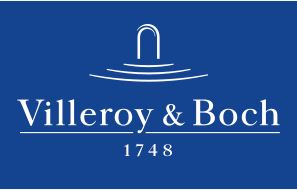 The Management Board of Villeroy & Boch AG decided to revise the company´s forecast for 2019. While the revised expectation is a decline to between 825m EUR and 850m EUR for the consolidated revenue, while the forecast for the EBIT has been reduced to between 48m EUR and 52m EUR. In a press release, the company explained the need to revise the prior expectation in light of an unsatisfactory revenue development in the first half of 2019. At the same time, the release advised that preliminary agreements regarding the sale of a former plant property in Luxembourg have been concluded and that the Management Board expects the transaction, which was supposed to be completed in 2019, to generate a “high eight-figure non-recurring income”.
The Management Board of Villeroy & Boch AG decided to revise the company´s forecast for 2019. While the revised expectation is a decline to between 825m EUR and 850m EUR for the consolidated revenue, while the forecast for the EBIT has been reduced to between 48m EUR and 52m EUR. In a press release, the company explained the need to revise the prior expectation in light of an unsatisfactory revenue development in the first half of 2019. At the same time, the release advised that preliminary agreements regarding the sale of a former plant property in Luxembourg have been concluded and that the Management Board expects the transaction, which was supposed to be completed in 2019, to generate a “high eight-figure non-recurring income”.
This was reason enough for shareholders to expect a positive signal towards the end of 2019. Instead, the company announced on December 30th the resignation of the chairman of the Supervisory Board with effect from December 31st, 2019, and on the following day the resignation of the Chairperson of the Audit Committee, effective February 29th, 2020. Shareholders are assured that the vacancies will be filled shortly. But are the revised earnings guidance still valid, and what happened in Luxembourg?
Scout24 AG: Convincing Advice from Elliott
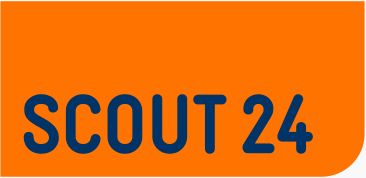 In May 2019, a voluntary public takeover bid by funds advised by Hellman & Friedman LLC and affiliates of The Blackstone Group LP for Scout24 AG failed to reach the acceptance threshold. Hence, the company had to take a fresh look at its strategy and came up with a new strategic roadmap to enhance long-term value creation for its shareholders, which included a strengthening of the two core business verticals ImmobilienScout24 and AutoScout24, which became the probably most short-lived long-term strategic roadmap in 2019.
In May 2019, a voluntary public takeover bid by funds advised by Hellman & Friedman LLC and affiliates of The Blackstone Group LP for Scout24 AG failed to reach the acceptance threshold. Hence, the company had to take a fresh look at its strategy and came up with a new strategic roadmap to enhance long-term value creation for its shareholders, which included a strengthening of the two core business verticals ImmobilienScout24 and AutoScout24, which became the probably most short-lived long-term strategic roadmap in 2019.
About a week after the publication of its strategic long-term roadmap, the company received an interesting message from Elliott Advisors, which at the time advised funds that collectively held an interest representing more than 7% of the share capital of Scout24 AG. According to the letter, which still can be downloaded from www.scoutingforvalue.com, Elliott believed at the time that there are concrete and prudent steps that the management of the company should be taking that could drive the share price to more than 65 EUR per share, including a comprehensive strategic review focused on achieving a full separation of the AutoScout24 business, and a more ambitious share buyback program. The advice was supplemented by the statement that “Elliott looks forward to continuing to engage with the Boards of Scout 24 to help deliver this outcome.”
In December 2019 Scout24 announced the sale of AutoScout24 and another entity to Hellman & Friedman. The consideration (before potential adjustments) of 2.892bn EUR exceeded the market expectations and shareholders are now looking forward to the next step, i.e. the “more ambitious” buyback program.
TUI AG: Updated Dividend Policy
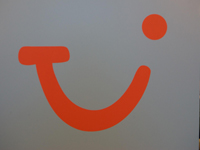 TUI AG informed about an update to its dividend policy. The company´s Supervisory Board approved an update prepared by the Executive Board to the capital allocation framework, which included the Group´s future dividend policy. The new policy shall apply for the first time for the financial year 2020 (ending on September 30th, 2020), i.e. for dividend payments from 2021 onwards. In this respect, TUI intends to pay a core dividend payout of 30 – 40% of the group´s “underlying EAT”, with the minimum payout defined as 0.35 EUR per share.
TUI AG informed about an update to its dividend policy. The company´s Supervisory Board approved an update prepared by the Executive Board to the capital allocation framework, which included the Group´s future dividend policy. The new policy shall apply for the first time for the financial year 2020 (ending on September 30th, 2020), i.e. for dividend payments from 2021 onwards. In this respect, TUI intends to pay a core dividend payout of 30 – 40% of the group´s “underlying EAT”, with the minimum payout defined as 0.35 EUR per share.
The company expects the new dividend policy to result in lower payouts, but pointed out that the dividend floor of 0.35 EUR per share guarantees shareholders a minimum payout irrespective of the market environment of the tourism industry and subsequent impacts on the “underlying EAT”.
At the same time, TUI defined the Group´s financial priorities as follows:
- Organic growth
- Payout of a core dividend
- Accretive mergers & acquisitions and portfolio optimization
- Excess cash to be returned to shareholders.
At the same time, a solid balance sheet shall be maintained and the gross leverage ration should be kept within the range of 3.0x – 2.25x.
While many German companies still underestimate the relevance of a transparent dividend policy for shareholders, TUI opted for an ad hoc release. Thank you!
Delticom AG: Finally financed
Delticom´s shareholders must be very patient people. The company has a business model, the shares are listed, and it had ambitious plans. But corporate governance is not a particular strength with this leading European online retailer for tires and car accessories, specialist in e-food, etc. In this respect, 2019 highlighted once more that the combination of a business model and some business activities by itself is not yet enough to create a solid corporate entity.
2019 started with a strange news flow. In March 2019, Delticom realized that there were delays in the preparation and audit of the financial statements 2018 and that it became apparent that Delticom and the auditor, KPMG, were too optimistic with regard to the time required for the auditing process. But it took until March 19th for Delticom to note that the 2018 annual report could not be published as planned on March 21st, 2019. Also, the AGM had to be postponed for this reason. Four weeks later, it became apparent that the company used the time to acquire advice on how to structure the further process. Therefore, in an ad hoc release dated April 26th, the company explained to its shareholders: “As soon as it has been determined when the financial statements will be prepared and audited and approved by the Supervisory Board, Delticom will set and announce a date for the publication of the Annual Report and the Annual General Meeting.”
By the end of June, the uncertainty as regards the past was over, since the preparation and audit of the financial statements could be concluded by June 25th, 2019. However, the accounts underwent a few minor adjustments during this process. In particular, the EBITDA declined to 9.0m (2017: 9.3m) EUR (preliminary result 2018 as announced in March 2019: 12.0m EUR).
On November 15th, 2019 Delticom published an update on the company status, according to which a restructuring concept had been developed and the first implementation steps already been taken. More importantly, the company informed that it was negotiating with the financing banks a continuation of the existing financing. In addition, the release informed that on August 7th, 2019, Delticom concluded a standstill agreement with its financing banks, which has since been extended already several times.
Funny enough, to scare naïve shareholders seems to require an ad hoc-announcement with Delticom, while the more positive conclusion of an agreement with the financing banks on the extension of the financing until the end of 2021 was published as corporate news. Anyhow, stranger things happen from time to time, such as the statement by the member of Delticom`s Managing Board Andreas Prüfer: “Now we are in calmer waters and can concentrate consistently on our business goals.”
Ups, same thing again?
Nordex SE: Technical Takeover Offer
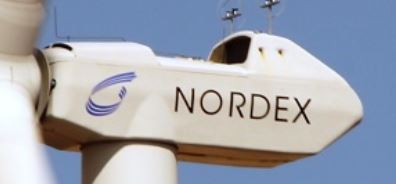 Nordex issued 9,698,244 new shares under exclusion of subscription rights to its anchor shareholder Acciona S.A. by way of a private placement at an issue price of 10.21 EUR per share. The capital increase amounts to 10% of the share capital before the increase. The issue price corresponds to the volume-weighted average price of the Nordex shares on the last three trading days in XETRA trading on the Frankfurt Stock Exchange before the capital increase resolution. The gross proceeds of the issue amount to 99m EUR, and the share capital of Nordex will consist of 106,680,691 bearer shares after the increase.
Nordex issued 9,698,244 new shares under exclusion of subscription rights to its anchor shareholder Acciona S.A. by way of a private placement at an issue price of 10.21 EUR per share. The capital increase amounts to 10% of the share capital before the increase. The issue price corresponds to the volume-weighted average price of the Nordex shares on the last three trading days in XETRA trading on the Frankfurt Stock Exchange before the capital increase resolution. The gross proceeds of the issue amount to 99m EUR, and the share capital of Nordex will consist of 106,680,691 bearer shares after the increase.
The information regarding the use of the proceeds sounds like somebody hit the standard textbook modular for capital increases: “The proceeds serve to strengthen the company´s capital structure….” Fine, we heard that many times already. But the release contained an interesting bit of extra information. Due to the completion of the capital increase, Acciona´s shareholding in Nordex will exceed 30% of the company´s share capital. Hence, Acciona will be obliged to announce and effect a mandatory public takeover offer to all Nordex shareholders, or it could announce and implement a preemptive voluntary takeover offer, the release clarified.
On November 18th, 2019, the voluntary public takeover offer to the shareholders of Nordex by Acciona was published. The bidder offered a cash consideration of 10.34 EUR per share of Nordex SE. This offer expired on December 18th, 2019, with an additional acceptance period pursuant to Section 16 WpÜG ending on January 6th, 2020. On January 9th, 2020, the final acceptance level was announced and it turned out that until the end of the additional acceptance period, the offer has been accepted for a total of 149,399 Nordex shares. Accordingly, including the shares already held, Acciona now controls 38,845,395 Nordex shares corresponding to 35.41% of the share capital and the voting rights.
PNE AG: Successful Offer due to Waiver of initial Threshold Requirement
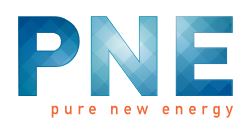 PNE shareholders are used to turbulences. In particular, the corporate governance of the company gave cause for concern. But perhaps these days are over now as a consequence of the outcome of the recent public takeover offer.
PNE shareholders are used to turbulences. In particular, the corporate governance of the company gave cause for concern. But perhaps these days are over now as a consequence of the outcome of the recent public takeover offer.
On August 26th, 2019, the company confirmed market rumors concerning conversations with Morgan Stanley Infrastructure Partners on possibilities of co-operation and investments that would include a takeover offer for PNE. These negotiations resulted in the signing of an investment agreement with Photon Management GmbH, an indirect wholly-owned subsidiary of funds managed and advised by Morgan Stanley Infrastructure Inc., on October 10th, 2019.
Based on this agreement, Photon announced its intention to make a public takeover offer at a price of 4.0 EUR per PNE share in cash on October 31st, 2019. The offer price corresponds to an approximate 31% premium in relation to the unaffected share price on August 26th, 2019, and an approximate 21% premium on the volume-weighted average share price over the past three months. The initial offer provided for a minimum acceptance threshold of 50% plus one share. Also, the parties planned already to alleviate the annoying burdens of corporate governance by way of withdrawal of admission for trading of the PNE shares form the regulated market, subject to the acquisition of more than 50% of the voting rights in PNE.
Unfortunately, the acceptance of the offer fell short of expectations, not least due to shareholder criticism of the offer price. Hence, the bidder waived the minimum threshold requirement and the acceptance period was extended from November 28th, 2019, to December 12th, 2019, with an additional acceptance period according to Sec. 16 para. 2 of the German Securities Acquisition and Takeover Act ending on December 31st, 2019. Until then, the offer had been accepted for a total of 9,322,325 PNE shares, corresponding to approximately 12.17% of the share capital and voting rights of PNE AG. Together with the 20,953,096 PNE shares already directly held by the bidder on that day, the total of approximately 40% of the share capital fell far short of the original threshold of 50%.















